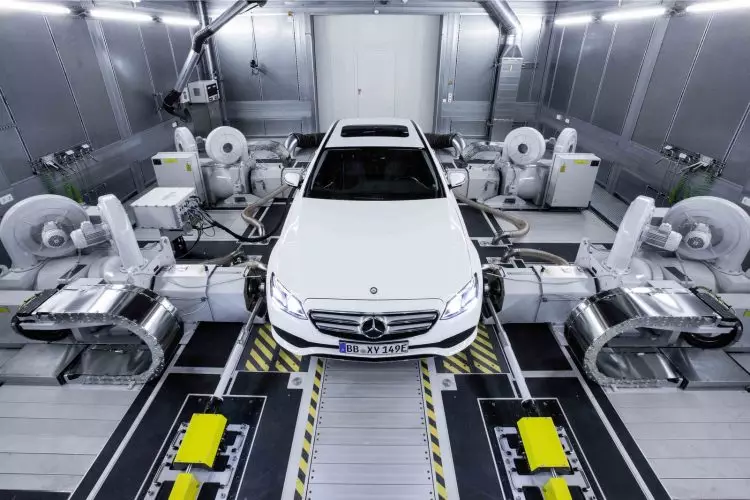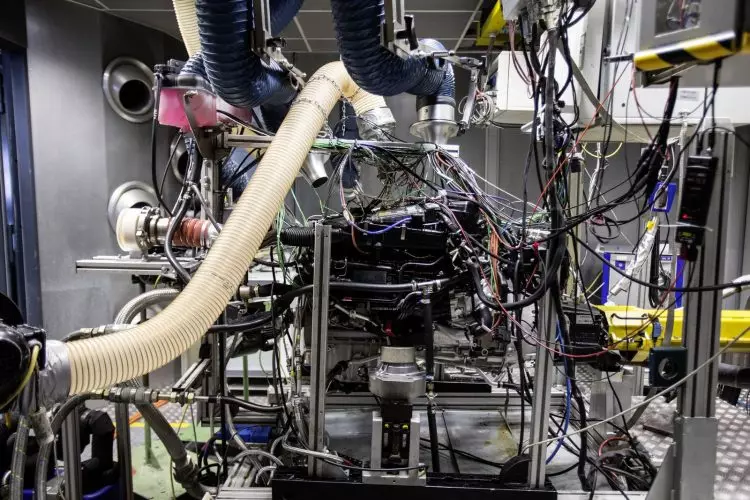After 18 years of production, Mercedes-Benz will abandon V6 engines. The future of the brand is made with modular engines.
For years and years we've heard several brands say that V6 engines, compared to in-line six-cylinder engines, were cheaper to produce and easier to "fix", therefore a better option. In the case of Mercedes-Benz, this statement made even more sense because most of its V6 engines are derived directly from the V8 blocks. The Stuttgart brand cut two cylinders to their V8 blocks and bye, they had a V6 engine.NOT TO BE MISSED: Volkswagen Passat GTE: a hybrid with 1114 km of autonomy
Problem with this solution? In a 90° V8 engine the explosion order in one cylinder is counterbalanced by the explosion order in the opposite cylinder, resulting in highly balanced and smooth mechanics. The problem is that with two cylinders less (and a different explosion order) these V6 engines were less smooth and more unbalanced. Faced with this problem, the brand was forced to resort to tricks in electronics to counterbalance and smooth the functioning of these mechanics. In in-line six-cylinder engines this problem does not exist because there are no sideways to override.
So why return to inline six-cylinder engines now?
The engine in the highlighted image belongs to the new engine family from Mercedes-Benz. In the future we will find this engine in the S-Class, E-Class and C-Class models. According to Mercedes-Benz, this new engine will even replace the V8 engines – being able to generate more than 400hp in the more powerful versions.
Answering the question “why go back to six in a row now”, there are two big reasons for Mercedes to do so. The first reason is engine overcharging – the in-line six engine architecture facilitates the adoption of sequential turbos. A solution that is now more in vogue than ever and that a few years ago was not very recurrent.

The second reason has to do with cost reduction. The family to which this new engine belongs is modular. In other words, from the same block and using practically the same components, the brand will be able to make engines with four to six cylinders, using diesel or gasoline. A production scheme that has already been put in place by BMW and Porsche.
Another new feature of this new family of engines is the use of a 48V electrical sub-system that will be responsible for feeding an electric compressor (similar to the one introduced by the Audi SQ7). According to the brand, this compressor will be able to reach 70,000 RPM in just 300 milliseconds, thus canceling out the turbo-lag, until the main turbo has enough pressure to work fully.
In addition to powering the electric compressor, this 48V sub-system will also power the air conditioning system and serve as an energy regenerator – taking advantage of braking to charge the batteries.
Goodbye to Renault engines?
In the past, BMW had a problem with smaller powertrains. Given the MINI sales volume, it was financially unfeasible for BMW to produce and develop engines from scratch for the British brand's models. At the time, the solution was to share engines with the PSA group. BMW only stopped “borrowing” engines from the French group once it started producing its own family of modular engines.NOT TO BE MISSED: Why are German cars limited to 250 km/h?
In a simplified way (very simplified…) what BMW currently does is produce engines from modules of 500 cc each – Mercedes-Benz has adopted a similar displacement for its modules. Do I need a 1.5 liter 3-cylinder engine for the MINI One? Three modules are joined. Do I need an engine for the 320d? Four modules come together. Do I need an engine for the BMW 535d? Yes you guessed. Six modules come together. With the advantage that these modules share most of the components, be it a MINI or a Series 5.
Mercedes-Benz may do the same in the future, dispensing with the Renault-Nissan Alliance engines that currently equip the less powerful models of the Class A and Class C range. this new family of engines could feature across the entire Mercedes-Benz range – from the most affordable A-Class to the most exclusive S-Class.

